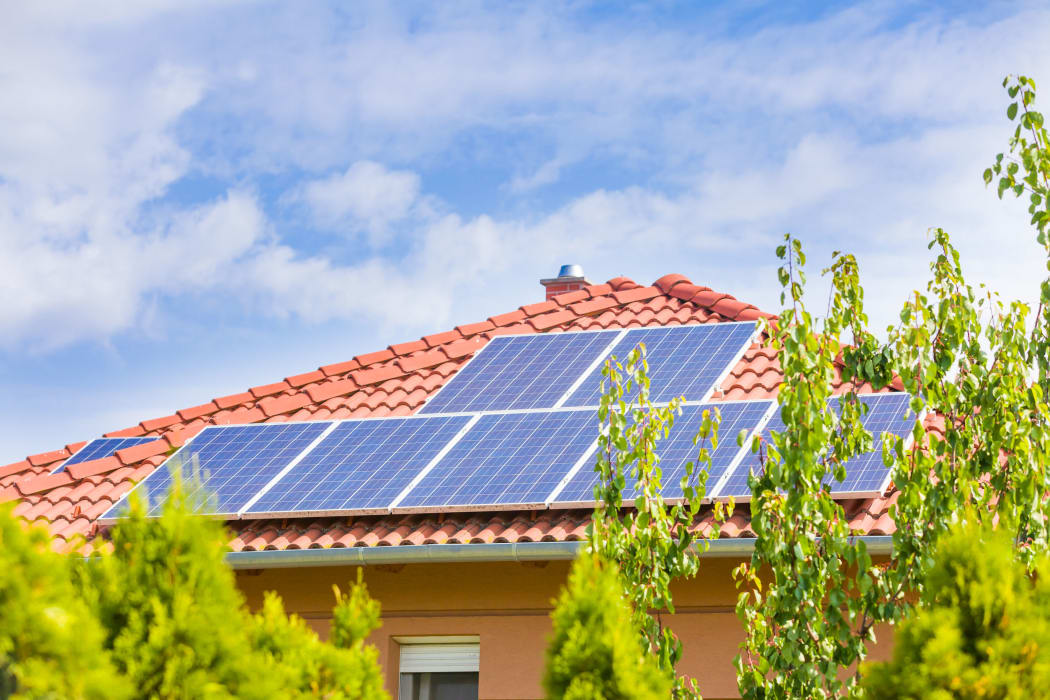A study by Transpower suggests up to 1.3 million households in New Zealand could have solar panels by 2050.
But whether having solar power really pays off depends on several factors, says Powerswitch manager Paul Fuge.

Photo: lighthunter/123RF
Fuge told Nine to Noon it was suitable for him to install solar power, but people should carefully weigh up their use and costs before doing it.
"The prices have dropped dramatically in the last 20 years, to the point where now it's viable for my house.
"What we can see is the pool of houses for which solar will be economic has increased and will continue to increase."
Among things to consider are how much sun your house gets, the pitch of your roof, how much and what time of day you use power, how much you sell back to the grid, as well as the fluctuations of power prices and buy-back rates.
Households that suit solar power are the ones that can use it as it's being produced, Fuge says.
"That's because the buyback rates - that's the price at which retailers will buy electricity from you - is dramatically less than the price that you're buying from them for."
The average price for 1 kilowatt an hour is 30 cents, but the buyback rate is between 8 cents and 12 cents, he says.
Fuge says it costs about $10,000 for a 3 kilowatts system for an average house.
The Energy Efficiency Conservation Authority and Consumer NZ have calculators to help people measure how long it would take for the solar installation to pay off.
"I've used both of those and I got a range of between 10 and 12 years, which kind of lined up with my back of the envelope calculations but what I'm doing now is looking at the real data coming off the system and as time goes on I can actually calculate how close to those estimates the reality actually is."
Fuge says they're also talking to solar providers about including them in price comparisons with electricity.
"We have been talking to one company who is offering quite an innovative retail product where they will actually install the system at zero cost to you and then you would buy electricity from them, from that system for a period, so that way it basically avoids that large upfront cost."
Solar power is becoming more economical due to the drop in the associated costs while electricity prices increased, Fuge says.
"The conditions are becoming right for rapid uptake, so currently in New Zealand there's about 160 megawatts of solar installed, 80 percent of that is actually in the residential market but 60 megawatts of that has been installed in the last two years.
"That's around 30,000 households that currently have a solar system, so for context there's about 1.8 million households in New Zealand.
"We know there's a large commercial solar installer looking at putting a large solar power station in Northland in the next year or so of about 40 megawatts."
Fuge says a possible game changer is multiple trading relationships - where a person doesn't necessarily have to buy and sell their power from the same place.
"Of course, there's a big price difference between what they buy electricity for and what they sell for.
"But if there are multiple trading relationships, that means you could sell your electricity at a higher price to a different provider than the person you're buying your electricity from."
It's also possible to get a battery to store extra or unused power to reap the full economic benefits, he says.
"It allows you to store electricity during low price times and then release the electricity for a high price at higher price times."
Solar panels generally last about 25 years and don't really require maintenance either, he says.

